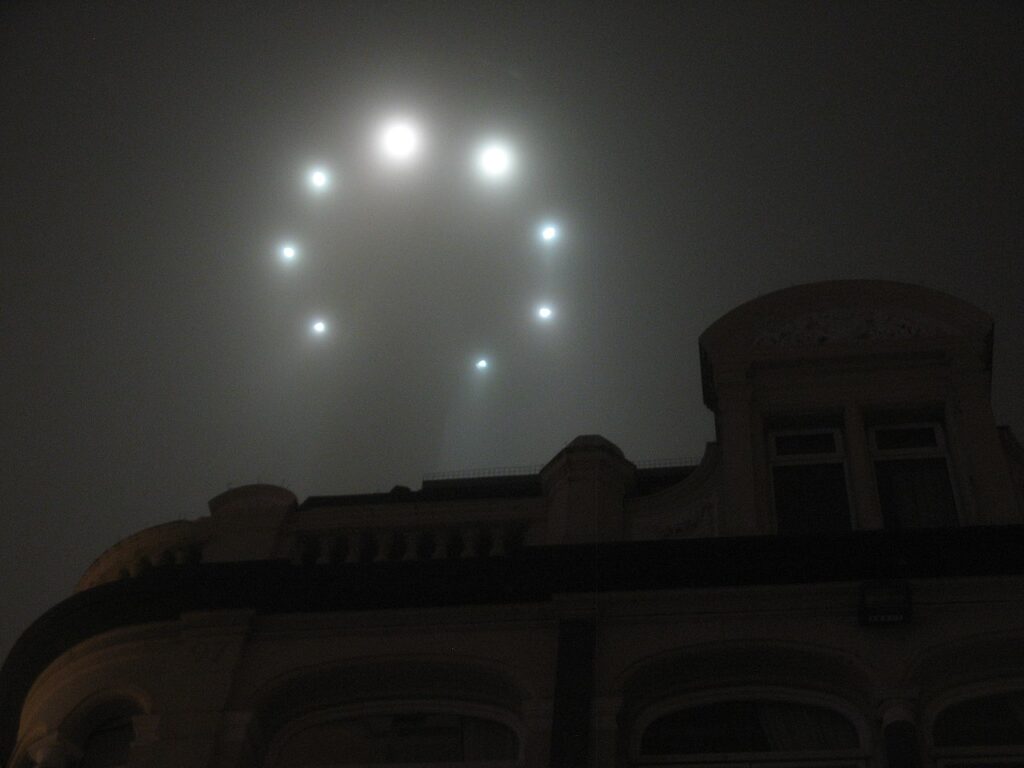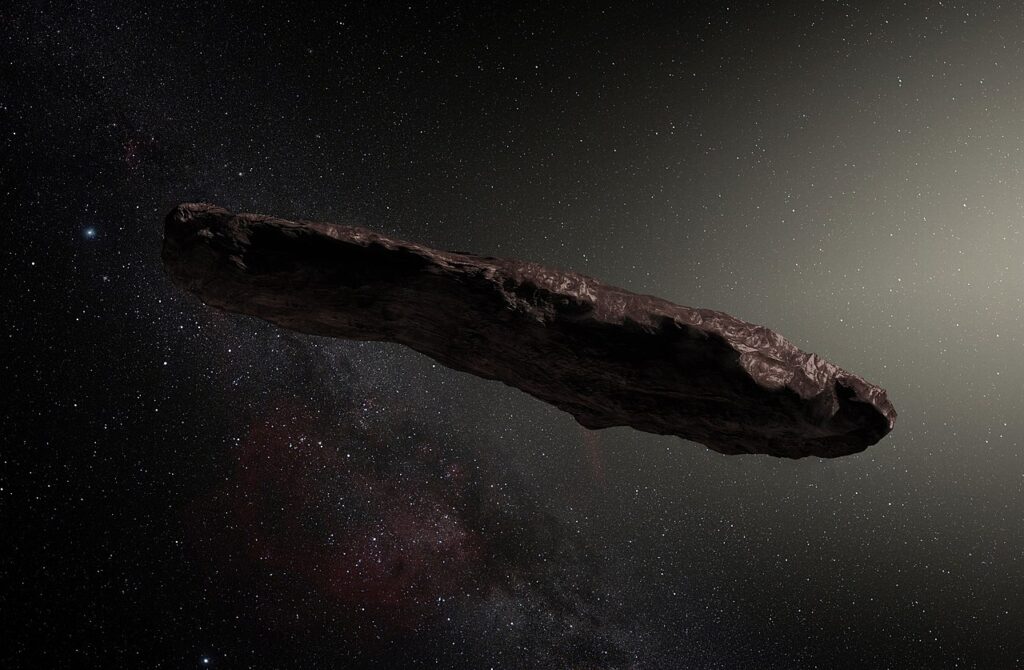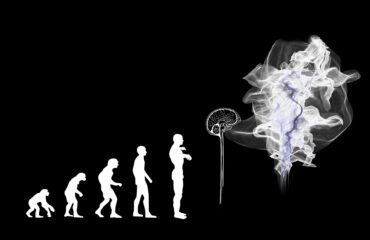
This artistic image is captioned, “UFOs over Liverpool?” As far as our civilization can remember, humans have been debating whether unknown lights in the sky are proof of alien life. Credit: Dreese.
By Mariana Meneses
The many intriguing lights and events of the night sky have fascinated intelligent beings on Earth, and maybe on other planets like ours, throughout time.
Here on Earth, from the first individual to look in awe at the sky, to Galileo Galilei’s pioneering telescope observations, to the modern pursuit of extraterrestrial life, the quest to unravel the mysteries of the cosmos has garnered a diverse community of enthusiasts and employed varying degrees of scientific rigor in the exploration of what lies beyond our planetary confines.
NASA’s latest UFO report was released on September 14, 2023, presenting findings from an investigation into hundreds of UFO sightings. While the report lacks conclusive evidence of extraterrestrial involvement in unexplained phenomena, NASA emphasizes its commitment to exploring Unidentified Anomalous Phenomena (UAPs, also known as UFOs) using advanced technology and artificial intelligence. The 36-page document, a collaboration among 16 leading data and AI scientists, reveals that although most UAP reports can be explained, a small portion remain unidentified.
The report underscores the challenge of understanding UAPs due to a lack of high-quality data, prompting NASA to appoint a new director of UAP research and establish a comprehensive database. The use of artificial intelligence and machine learning is recommended, and NASA looks to crowdsourcing techniques, including smartphone apps, to address the data shortage. Despite the lack of conclusive proof of alien existence, the report acknowledges the potential for unknown alien technology operating in Earth’s atmosphere.
“An unidentified flying object (UFO), more recently relabeled by certain enthusiasts as UAP (unidentified aerial phenomenon), is any perceived aerial phenomenon that cannot be immediately identified or explained. On investigation, most UFOs are identified as known objects or atmospheric phenomena, while a small number remain unexplained”. Wikipedia
Prominent among the main institutions and projects searching for alien intelligent life is the non-profit Search for Extraterrestrial Intelligence (SETI) Institute, with more than 100 scientists researching the universe with tools such as the Allen Telescope Array.

Illustration of Galileo Galilei with his famous telescope. Image: Free SVG
SETI researchers face challenges in distinguishing alien from terrestrial signals using radio astronomy.
Traditional methods are time-consuming for short-lived signals, but a new technique uses scintillation analysis. The software identifies extraterrestrial signals with flickering characteristics on a sub-minute timescale, providing a quicker way to filter out terrestrial interference. However, limitations include distance constraints and potential mimicking by human-made sources.
Another effort comes from a project named after the famous astronomer Galileo Galilei (1564-1642).
The Galileo Project is hosted at Harvard University and led by Dr. Avi Loeb, who believes they may make path-breaking discoveries about potential extraterrestrial technological civilizations. The Project aims to examine unidentified aerospace phenomena and image them in the infrared, optical, radio, and audio bands, and take a close look at interstellar objects.
These investigations could be costly, so they also plan a less expensive means, by finding and examining an interstellar meteor like the one that landed in Papua New Guinea in 2014. They hope to discover if these meteors contain any signs of extraterrestrial intelligence.

Artist impression of Oumuamua, the first interstellar object observed in our solar system, is composed of dense metal-rich rock colored dark red by millions of years of cosmic rays exposure. Observations of radio emissions for signs of artificial origin yielded negative results. Image: ESO/M. Kornmesser.
In the search for signatures of advanced technology of Extraterrestrial Technological Civilizations (ETCs), the Galileo Project aims to combine scientific rigor and transparency, making data openly accessible and subjected to peer-review, in contrast to classified military information.

Dr. Avi Loeb, Head of the Galileo Project. Photo: Christopher Michel
The research is connected to the hypothesis that Oumuamua, the first interstellar comet ever discovered in our solar system, was a probe from an extraterrestrial intelligent species, interested in learning about our solar system. Their hope is to use sensors to hunt for any unusual, artificial, and potentially alien satellites orbiting Earth.
There remains much skepticism around the search for extraterrestrial life, thus, balancing scientific rigor and open-minded exploration is a challenge in this cosmic quest.
A statistical analysis of the six-decade-long silence in the search for extraterrestrial intelligence suggests that the absence of alien radio signals may be due to Earth’s position in a region devoid of such signals. The study, conducted by Claudio Grimaldi from Ecole Polytechnique Fédérale de Lausanne’s Laboratory of Statistical Biophysics and published in The Astronomical Journal, proposes that Earth might be in a “pore” within the Milky Way, where electromagnetic signals from extraterrestrial life are absent. Grimaldi recommends continuing the search for signals while considering alternative strategies, such as using data from other astrophysical studies to detect potential techno-signals.
There are also ethical considerations.
Space ethics, also known as astro-ethics, is a discipline examining the moral implications of astro-biological research, space exploration, and space flight. Key considerations include space debris mitigation, the militarization of space, and theoretical topics like space colonization and terraforming. Ethical guidelines, such as Planetary Protection and the Precautionary Principle, guide decisions in preventing contamination and addressing uncertainties.
Astro-ethics explores fundamental moral questions regarding ethics in the search for extraterrestrial intelligence and METI (Messaging Extraterrestrial Intelligence), including the intrinsic value of extraterrestrial life, and how humanity should treat non-intelligent and intelligent extraterrestrial life forms. Specific issues, like space debris risks and concerns from private spaceflight and space tourism, underscore the importance of ethical frameworks in advancing space exploration responsibly.
Some of the philosophers who opposed Galileo’s heliocentric view of the solar system refused even to look through his telescope.
The resistance to new ideas or technologies, particularly when they challenge established beliefs or worldviews, is as natural as our imperative to change. However, despite initial skepticism, Galileo’s revolutionary observations through the telescope ultimately transformed our understanding of the cosmos, unveiling the wonders of the solar system that stretched beyond the confines of conventional wisdom.
In the face of skepticism and resistance, one cannot help but wonder: what other profound revelations and paradigm shifts might be awaiting our discovery if we dare to peer beyond the boundaries of our preconceived notions?
Craving more information? Take a look at these recommended TQR articles:
What’s In the Middle of Black Holes, and Why Do We Care?
Time, Black Holes, and the Search for the Theory of Everything
Does the Universe Have a Holographic Memory?
Dark Energy Explorers: A Citizen Science Project Looks Over 9 Billion Years Into the Past
The Cool Neighbors of Our Sun: Citizen Scientists Search for Brown Dwarfs



